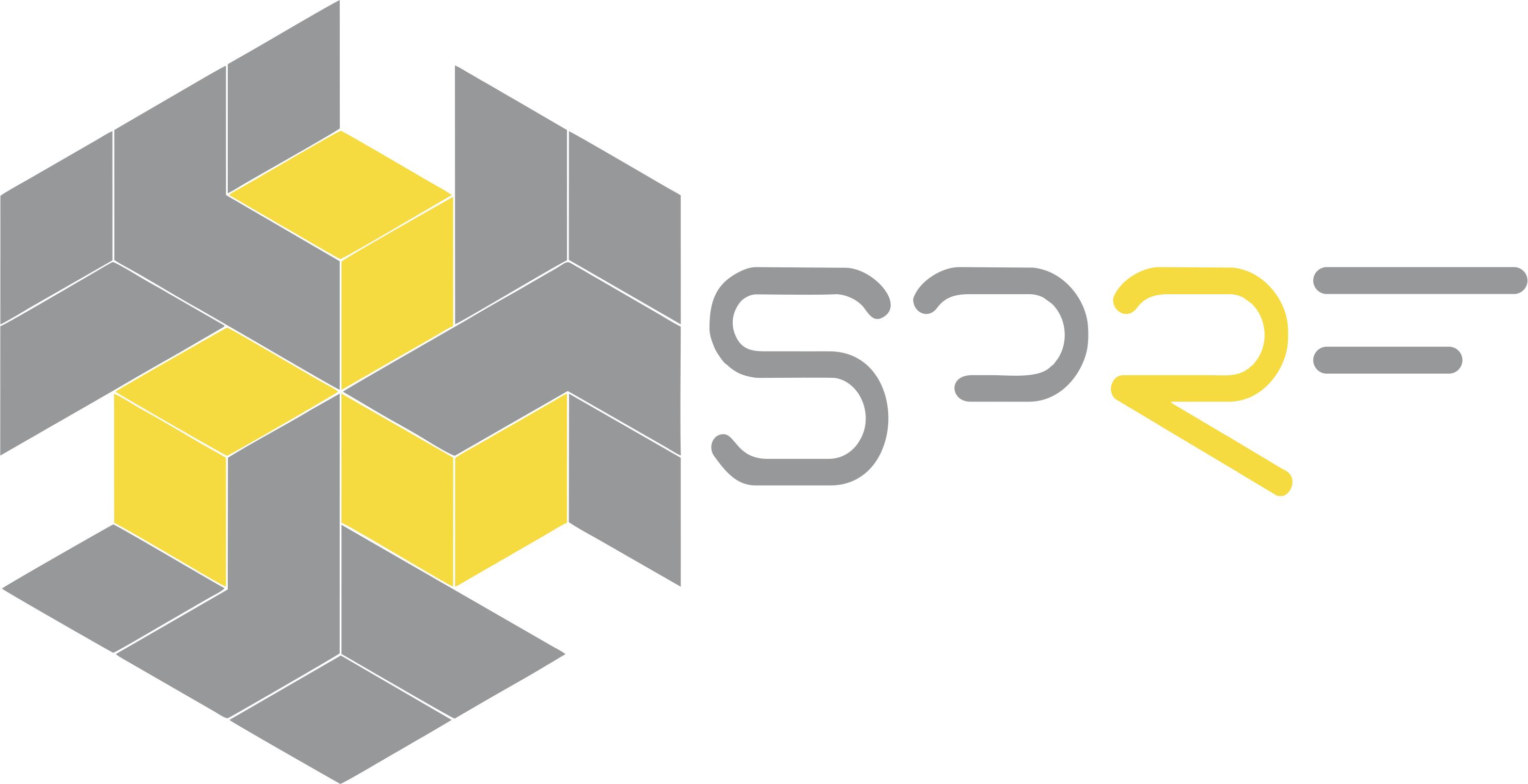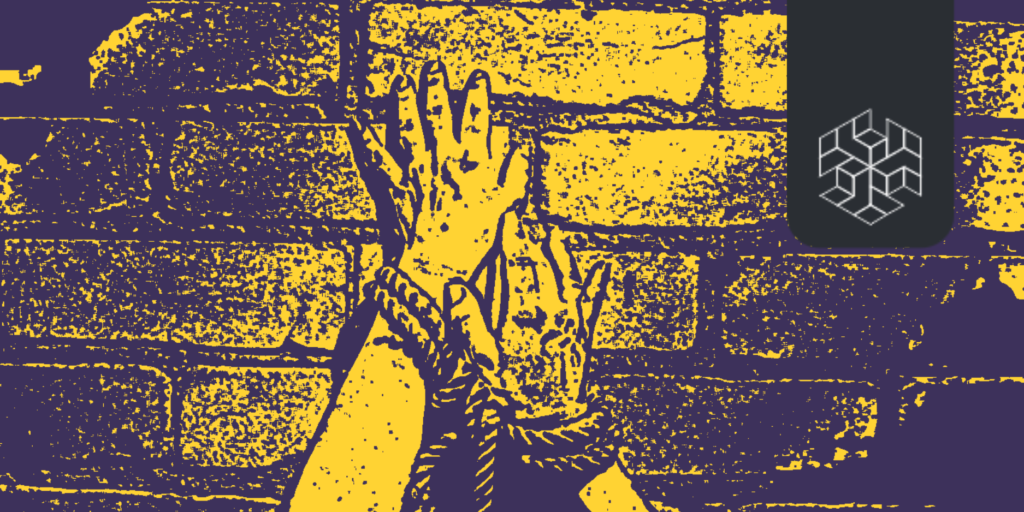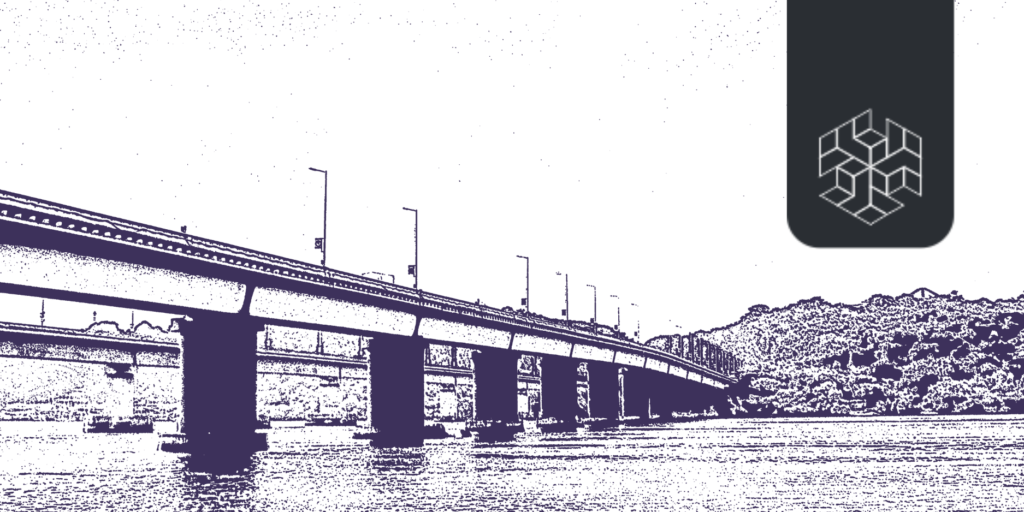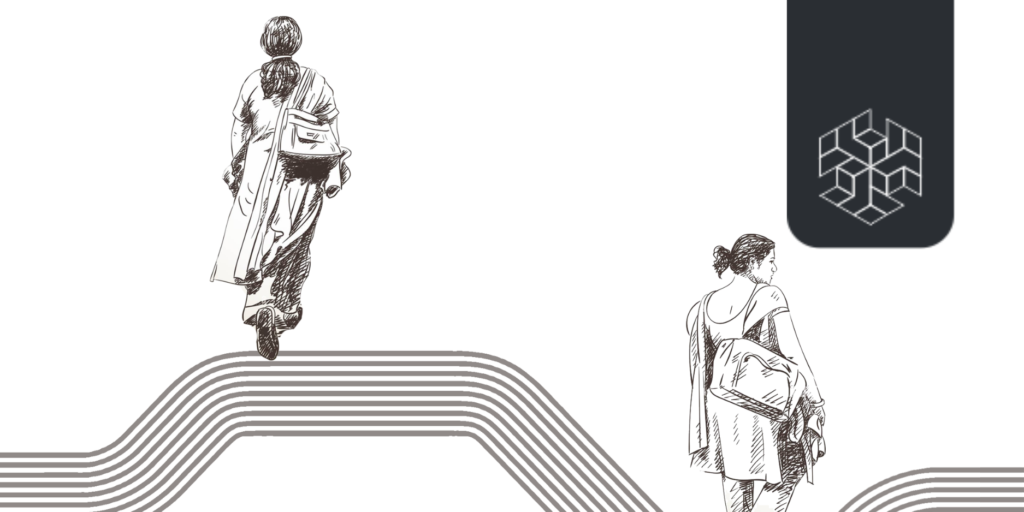Author: Neha Maria Benny
Abstract
This article delves into the need for horizontal reservation for transgender individuals in India, particularly after the recent Madras High Court judgement. It examines the concept, distinguishing it from vertical reservation, explains its rationale for advancing transgender rights, and discusses the limitations of vertical reservation. The paper also provides insights into the current state of transgender reservation, offering an overview of existing policies, legislative frameworks and challenges. The paper then presents a set of policy recommendations, outlining the advantages of implementing horizontal reservation, its alignment with international human rights standards, and the potential impact on transgender inclusion and empowerment.
Introduction
On January 9, 2024, the Madras High Court instructed the Tamil Nadu government to consider implementing a 1% horizontal reservation for the transgender community in education and public employment across all caste categories in the state (Banerjee, 2024). This directive, stemming from a Public Interest Litigation (PIL) filed by transgender activist Grace Banu, could mark a significant stride toward inclusivity and acknowledgement for the transgender community. Similar petitions have also been filed at the Delhi HC (S, 2023) and the Rajasthan HC for horizontal reservations in education and employment.
Understanding Horizontal Reservation
Discrimination manifests in both positive and negative forms. In India, the reservation system involves earmarking seats in governmental employment, educational institutions, and legislative bodies for specific sections of society (Mahaseth et al., 2024). This practice of affirmative action is a type of positive discrimination sanctioned by government policy and enshrined in the Constitution of India for protected characteristics. The primary intent of this policy is the advancement of Scheduled Castes (SC) and Scheduled Tribes (ST), along with socio-educationally disadvantaged segments, including Other Backward Classes (OBC) and Economically Weaker Sections (EWS). India’s reservation policy is of two types: vertical and horizontal.
Vertical reservation allocates a specific percentage of positions to different social groups. It is typically implemented for categories such as Scheduled Castes (SC), Scheduled Tribes (ST), and Other Backward Classes (OBC). Horizontal reservation provides separate reservation quotas within each caste or category. It ensures that a certain percentage of seats or opportunities are reserved for specific subgroups within each major vertical category. This type of affirmative action aims to address intersectional forms of discrimination experienced by different marginalised groups (Sasikumar, 2023).
In 2021, the central government suggested the inclusion of transgender individuals in the Other Backward Classes (OBCs) list. Kerala offers ad-hoc reservations to trans people without considering their specific caste identities. Initially, Karnataka adopted a similar approach until Jeeva, an organisation working extensively on the rights of transgender persons, initiated a legal battle, leading to the implementation of horizontal reservations for trans people across castes (Hussain, 2023).
Following the 2014 National Legal Services Authority (NALSA) judgement, the Tamil Nadu government included the transgender community in the ‘Most Backward Class’ (MBC) category in 2017, similar to the Other Backward Class (OBC) category (S, 2024). However, the challenge of MBC being treated as a separate vertical category is that individuals belonging to both SC/ST categories and the transgender community can claim reservation rights under only one category; it would require them to choose between their caste or gender identity. Additionally, trans individuals belonging to the OBC group will not gain extra benefits in the transgender quota. An inherent issue with the vertical reservation model is that trans individuals must compete with other OBCs, reducing their chances of securing reserved seats.
A Dalit transgender woman facing dual forms of oppression would require reservation in both caste and gender categories. In the case of horizontal reservation, a percentage of seats or job opportunities within each caste or category are reserved specifically for transgender people, recognizing their distinct challenges and ensuring inclusive representation (Sasikumar, 2023).
The Census (2011) data paints a dim picture of literacy among the transgender community, as only 46 per cent of transgender individuals are found to be literate. According to a study conducted by the National Human Rights Commission (2017), the formal employment rate for transgender individuals stood at a mere 6%. A considerable segment of the community thus resorts to informal occupations, such as begging and sex work, which are currently criminalized under various Acts and laws in India. However, trans persons often find themselves forced to engage in such work due to continued oppressive cultural practices and for survival. This paper contends that the challenges faced by the transgender community revolve around access and acceptance. It argues that horizontal reservation indirectly impacts acceptance by directly influencing access. The paper argues for the state’s active intervention to rectify historical disparities and provide fair education and public employment opportunities.
The Current State of Transgender Reservation in India
In 2014, NALSA filed a case seeking legal recognition for individuals outside the gender binary, including those identifying as ‘third gender.’ The Supreme Court ruled in favour of recognising the fundamental right of individuals to self-identify their gender, defining it as “an innate perception of one’s gender.” The landmark decision directed Union and state governments to implement measures, including legal recognition of ‘third gender’ in documents, reservation entitlements in education and public employment, and the formulation of social welfare schemes for the transgender community (Mahaseth et al., 2024). However, it did not specify whether the reservation had to be horizontal or vertical. The judgement also did not provide any mode of legal recognition of self-identification that it granted. Following the judgement, here are some of the policy measures states have implemented a decade later:
Tamil Nadu was the first Indian state in 2015 to recruit a transgender police officer after a Madras High Court directive (BBC, 2015). This decision signified a progressive commitment to inclusivity, challenging societal norms and providing a platform for transgender individuals to excel in mainstream professions. It was also the first state in India to explicitly prohibit harassment of the LGBTQIA+ community (Singh et al., 2022).
Kerala was the first state in India to formulate a Transgender Policy, but the community contends that fundamental rights, including housing, employment, and pension, remain unfulfilled. The existing benefits primarily focus on financial aid for gender reassignment surgery and scholarships, but financial assistance for surgery is available only post-operation. Reserved seats for trans persons in colleges lack corresponding hostel facilities with separate amenities. The oversight of the mandatory transgender policy on campuses exacerbates these challenges. As of July 2023, fewer than 1600 trans individuals possess identity documents in Kerala, leaving over 80% without documentation and thereby excluding them from policy benefits (Mathew, 2023).
The Chhattisgarh Police’s decision to hire transgender constables (Mishra, 2021) has been followed by Maharashtra (Agarwal, 2022) and West Bengal (Mitra, 2024). In April 2023, transgender persons were included in the OBC category in Madhya Pradesh (Gupta, 2023). In addition to employment opportunities, Chhattisgarh demonstrated its inclusivity in the democratic process. The Antagarh assembly segment set up a ‘rainbow’ model polling station during the state assembly polls in November 2023, providing a welcoming space for eight transgender voters with the presence of transgender police personnel (ETV Bharat English Desk, 2023).
The Maharashtra government announced in December 2023 that it will provide free-of-cost higher education for transgender individuals in public universities and affiliated colleges in the state (Express News Service, 2023). The National Capital Delhi, however, lacks a Transgender Welfare Board, which is intended to provide support in income, housing, education, employment, and healthcare for transgender individuals (Gupta, 2023).
In 2017, Karnataka introduced a transgender policy following the NALSA judgement of 2014, aiming to enforce constitutional guarantees of equal access, non-discrimination, and dignity (Deshpande, 2021). The State Policy on Transgenders was embraced after a prolonged consultation process with the transgender community and organisations from 2014 to 2017. The policy ensures the right of transgender individuals to self-identify and prohibits discrimination in education, employment, housing, and public spaces. It also promises safe housing for transgender children, facilities for transgender seniors, scholarships, and livelihood opportunities. Despite public consultations, key inputs from the community groups were excluded from the final policy. In 2021, Karnataka marked a milestone by becoming the first and only state in India to implement 1 per cent horizontal reservation for transgender individuals in civil services employment within each caste category (TNM Staff, 2021). The existing provisions related to age limit, fees, and physical standards lack the relaxations provided to other reserved categories.
However, reports indicate that the existing transgender policy in Karnataka has not been effectively implemented, with protests highlighting the absence of promised mechanisms. The challenges include a shortage of human resources, no separate budget allocation, and hindrances caused by frequent changes in Principal Secretaries within the state government over the last two years (Deshpande, 2021).
Battles for the Transgender Community
The Transgender Persons (Protection of Rights) Act, passed by the Indian Parliament in August 2019, faced criticism for insufficient consultation with the transgender community, and for conflicting with NALSA principles. While it includes enabling provisions, their effective implementation is deficient after four years across many states. In March 2023, the Union government informed the Rajya Sabha there was no specific policy being contemplated to offer government jobs to transgender individuals because the Transgender Persons (Protection of Rights) Act, 2019 already includes provisions for the welfare of transgender persons in employment, education, health, and related areas (Lakshman, 2023).
In 2020, the ‘National Portal for Transgender Persons,’ was introduced, allowing transgender individuals to apply for an identity card, aligning with the Transgender Persons (Protection of Rights) Rules, 2020. This certificate, issued by the Ministry of Social Justice and Empowerment, is essential for recognition and eligibility for Support for Marginalised Individuals for Livelihood and Enterprise (SMILE) welfare schemes. Once obtained, the certificate is incorporated into all official documents. The collaboration with Ayushman Bharat offers transgender individuals with an ID Rs 5 Lakh per annum insurance, covering various treatments, including Sex Reassignment Surgery (SRS) in Ayushman Bharat Pradhan Mantri Jan Arogya Yojana (AB PM-JAY) hospitals. Additionally, scholarships and grants for skill development are available post-certification. However, the certification process through this portal has proven to be a challenging ordeal for some (Ghosh, 2023).
Delays persist in Transgender ID issuance through the National Portal for Transgender Persons (Pandit, 2023). Officials’ prejudices affect essential document acquisition, which is essential to avail basic services and basic rights, including the right to education, work and education. Despite the Transgender Persons (Protection of Rights) Act stipulating a 30-day turnaround time, applicants face prolonged waiting periods, often extending to months or years.
Administrative hurdles include demands for unnecessary documentation, such as sex reassignment certificates, breaching the right to privacy and exposing applicants to hostilities. The disconnect between the legislation and its on-ground implementation, varying interpretations by District Magistrates, a lack of Standard Operating Procedures (SOPs) and a lack of awareness about the laws contribute to delays and complications.
The digital divide exacerbates the problem, with applicants from rural areas facing challenges related to digital literacy, access to the internet, and technical know-how. The portal’s reliance on email accounts, OTPs, and Captcha codes presents barriers for many transgender individuals. Limited awareness about benefits, difficulties in obtaining feedback, and the emotional toll of facing transphobia during interactions with authorities contribute to the overall struggles (Ghosh, 2023).
The Act mandates access to medical services for the transgender community, yet the unavailability of affordable gender-affirming services and bias in healthcare settings make them largely inaccessible. In 2021, the Ministry of Social Justice and Empowerment initiated 12 shelter homes for transgender persons on a pilot basis in 9 states called ‘Garima Greh’. Many of these shelters face delays in fund disbursement, lack adequate infrastructure and are at risk of shutting down (Sengupta, 2023).
Proposed Policy Recommendations
In light of the aforementioned challenges, we can argue that the hurdles faced by the transgender community revolve significantly around issues of access and acceptance. The lack of proper implementation of the directives of the NALSA judgement even after a decade and hindrances to access the basic services and rights reflect a lack of acceptance. The emotional toll of facing transphobia during interactions with authorities, coupled with limited awareness about benefits and difficulties in obtaining feedback, affects the overall well-being of the transgender community.
Horizontal reservations, addressing the demand for affirmative action, directly influence access to educational and employment opportunities. Reservations and visibility affect acceptance and representation in these spheres. The fight for horizontal reservation is crucial for communities facing intersectional discrimination. Access and acceptance are interconnected, and addressing barriers to access is crucial for fostering a more inclusive and accepting environment for the transgender community. Hence, it is the impetus of the State to intervene and provide affirmative action.
Effective implementation of existing transgender rights policies, such as the Transgender Persons (Protection of Rights) Act, includes creating awareness, providing training to officials, and establishing Standard Operating Procedures (SOPs) for consistent application. Adequate budgets as well as the establishment of inclusive Transgender Welfare Boards in all states, as mandated by the Trans Act 2019, is crucial.
Implementing stringent anti-discrimination measures across educational institutions, workplaces, and public spaces is essential. Awareness campaigns can foster a more inclusive and accepting society, challenging stereotypes and prejudices against transgender individuals. Collaborations with transgender activist groups to understand the ground-level challenges, and involving them in policy-making processes, will ensure more comprehensive and informed decisions. Establishing regular review mechanisms for transgender policies can help identify evolving challenges and adapt policies accordingly.
Reservations must encompass various public employment, education, local elections, and government welfare schemes, mirroring provisions for other reserved categories. Categorising transgender persons as a ‘socially and educationally backward class’ assumes homogeneity and ignores caste dynamics within the community. To address this, horizontal reservations, cutting across existing vertical reservations based on caste would better account for diverse social positions. That the transgender community has been fighting legal battles across the country for their rights, a decade post the NALSA judgement, underscores that horizontal reservations are simply the first step in inclusivity, and there is a long way to go.
Conclusion
The Madras High Court’s recent directive for a 1% horizontal reservation for the transgender community in Tamil Nadu is a positive step toward inclusivity and acknowledgement. Horizontal reservation, addressing both access and acceptance, is crucial for communities facing intersectional discrimination. Existing challenges highlight the need for comprehensive policy interventions. The State must actively implement and strengthen transgender rights policies, fostering awareness and providing training. Inclusive Transgender Welfare Boards with adequate budgets are essential, along with stringent anti-discrimination measures. Collaborations with activist groups, regular policy reviews, and expanded reservations across sectors can contribute to a more inclusive society.
References
Agarwal, S. (2022). A step towards inclusivity! Maharashtra to reserve a police post for transgender community. Knocksense. Retrieved January 30, 2024, from https://www.knocksense.com/mumbai/a-step-towards-inclusivity-maharashtra-to-reserve-a-police-post-for-transgender-community
Banerjee, A. (2024, January 10). Madras HC Directs TN Govt to Explore 1% Horizontal Reservation for Transgender Individuals. The Mooknayak English. https://en.themooknayak.com/lgbtq-news/madras-hc-directs-tn-govt-to-explore-1-horizontal-reservation-for-transgender-individuals
BBC. (2015, November 7). Tamil Nadu to appoint India’s first transgender police officer. BBC. https://www.bbc.com/news/world-asia-india-34753502
Deshpande, S. (2021, July 28). 4 years on, Karnataka State Transgender policy remains largely on paper. The News Minute. https://www.thenewsminute.com/karnataka/4-years-karnataka-state-transgender-policy-remains-largely-paper-153074
ETV Bharat English Desk. (2023, November 7). Chhattisgarh polls: India’s first ‘Rainbow’ polling station welcomes transgender voters in Kanker. ETV Bharat. https://www.etvbharat.com/english/state/chhattisgarh/chhattisgarh-polls-in-a-first-antagarh-welcomes-transgender-voters-with-rainbow-model-polling-station-in-india/na20231107115248125125889
Express News Service. (2023, December 7). Transgenders to get free education in public varsities, affiliated colleges in Maharashtra. The Indian Express. https://indianexpress.com/article/cities/mumbai/transgenders-to-get-free-education-in-public-varsities-affiliated-colleges-in-state-9056072/
Ghosh, T. (2023, July 24). Battle For Recognition: Why It’s So Difficult To Get Transgender IDs. BOOM Fact Check. Retrieved January 30, 2024, from https://www.boomlive.in/decode/why-it-is-so-difficult-to-get-transgender-ids-in-india-22600
Gupta, R. (2023, June 18). 12 states have transgender welfare board, but not Delhi | Delhi News. Times of India. https://timesofindia.indiatimes.com/city/delhi/12-states-have-transgender-welfare-board-but-not-delhi/articleshow/101076758.cms
Gupta, S. (2023, April 12). Transgenders now on OBC list in Madhya Pradesh, can avail of 14% quota | Bhopal News. Times of India. https://timesofindia.indiatimes.com/city/bhopal/transgenders-now-on-obc-list-in-madhya-pradesh-can-avail-of-14-quota/articleshow/99421785.cms
Hussain, S. (2023, September 30). From ‘Pride Month’ to landing on the moon, in the summer of ’69. The Statesman. https://www.thestatesman.com/world/indian-trans-community-seeks-horizontal-reservations-in-pride-month-1503188097.html
Lakshman, A. (2023, March 30). No separate policy under consideration for jobs to transgender persons: Centre. The Hindu. https://www.thehindu.com/news/national/no-proposal-under-consideration-to-provide-suitable-govt-jobs-to-trans-people-govt/article66676109.ece
Mahaseth, H., Mahaseth, M., Parrey, A. A., & Ugalmugle, S. (2024, January 17). Madras HC suggests 1 percent horizontal reservation for transgender persons in TN. The Leaflet. https://theleaflet.in/madras-hc-suggests-1-percent-horizontal-reservation-for-transgender-persons-in-tn/
Mathew, A. (2023, July 31). Lapses in implementation of Kerala’s Transgender Policy; 80 pc remain undocumented. Mathrubhumi English. https://english.mathrubhumi.com/news/kerala/lapses-in-the-implementation-of-kerala-s-transgender-policy-thousands-remain-undocumented-1.8778198
Mishra, R. (2021, March 1). In a first, Chhattisgarh police hire 13 transgenders as constables. Hindustan Times. https://www.hindustantimes.com/india-news/in-a-first-chhattisgarh-police-hire-13-transgenders-as-constables-101614610481859.html
Mitra, A. (2024, January 9). Breaking glass ceiling, West Bengal Police set to recruit transgenders as constables. The Indian Express. https://indianexpress.com/article/cities/kolkata/breaking-glass-ceiling-west-bengal-police-set-to-recruit-transgenders-as-constables-9100840/
Pandit, A. (2023, December 26). Over 3,200 applications for transgender ID cards pending for more than 30 days: Government | India News – Times of India. timesofindia. https://timesofindia.indiatimes.com/india/over-3200-applications-for-transgender-id-cards-pending-for-more-than-30-days-government/articleshow/106286961.cms?from=mdr
S, K. (2023, October 7). “No action since 10 years of NALSA” says trans person in petition to Delhi HC, calls for horizontal reservation. Edexlive. Retrieved January 30, 2024, from https://www.edexlive.com/news/2023/oct/07/no-action-since-10-years-of-nalsa-trans-person-petition-to-delhi-hc-horizontal-reservation-38074.html
S, M. I. (2024, January 09). Madras HC asks T.N. to consider providing 1% horizontal reservation to transgender persons in education, public employment. The Hindu. https://www.thehindu.com/news/national/tamil-nadu/consider-providing-1-horizontal-reservation-to-transgender-persons-in-education-public-employment-madras-high-court-to-tn/article67722602.ece
Sasikumar, M. (2023, April 20). Explained: Why Trans People Are Demanding Horizontal Reservation Across Castes. The Quint. https://www.thequint.com/explainers/trans-people-fight-for-horizontal-reservations-across-castes
Sengupta, B. (2023, May 28). Garima Grehs Crippling: Government Stops Funding for Trans Shelter Homes. The Probe. https://theprobe.in/stories/garima-grehs-crippling-government-stops-funding-for-trans-shelter-homes/
Singh, P. N., Kamath, V., Thanawala, S., & Bakshi, G. K. (2022, February 18). Tamil Nadu becomes the first state to punish cops for harassing LGBTQIA+ community. The Leaflet. https://theleaflet.in/tamil-nadu-set-to-become-the-first-state-to-punish-cops-for-harassing-lgbtqia-community/
TNM Staff. (2021, June 20). Karnataka to have horizontal reservations for trans persons, govt tells HC. The News Minute. https://www.thenewsminute.com/karnataka/karnataka-have-horizontal-reservations-trans-persons-govt-tells-hc-150975



